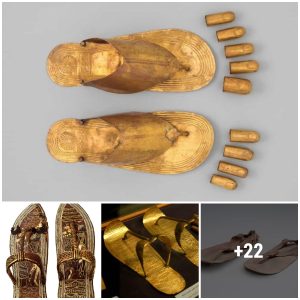A team of archaeologists have discovered the fossilised remains of a 72 million-year-old dinosaur tail in a desert in northern Mexico, it has been announced.
The ‘unusually well-preserved’ five yard-long tail was the first ever found in Mexico, said Francisco Aguilar, director of the country’s National Institute for Anthropology and History.

Relic: The researchers found the ancient dinosaur tail in Coahuila State in Mexico
The team, made up of archaeologists and students from INAH and the National Autonomous University of Mexico, identified the fossil as a hadrosaur, or duck-billed dinosaur.
The tail, found near the small town of General Cepeda found in the border state of Coahuila, likely made up half the dinosaur’s length, Aguilar said.

The ‘unusually well-preserved’ five yard-long tail was the first ever found in Mexico. It is 72 million years old
Archaeologists found the 50 vertebrae of the tail completely intact after spending 20 days in the desert slowly lifting a sedimentary rock covering the creature’s bones.
Strewn around the tail were other fossilised bones, including one of the dinosaur’s hips, INAH said.
Strewn around the tail were other fossilised bones, including one of the dinosaur’s hips

Precision: Archaeologists painstakingly excavate the tail
Dinosaur tail finds are relatively rare, according to INAH.
The new discovery could further understanding of the hadrosaur family and aid research on diseases that afflicted dinosaur bones, which resembled those of humans, Aguilar said.
Scientists have already determined that dinosaurs suffered from tumors and arthritis, for example.

Speaker for the dead: The tail, from a hadrosaur, will enable experts to learn about bone conditions that affected the colossal beasts
Dinosaur remains have been found in many parts of the state of Coahuila, in addition to Mexico’s other northern desert states.
‘We have a very rich history of paleontology,’ Aguilar said.
He noted that during the Cretaceous period, which ended about 65 million years ago, much of what is now central northern Mexico was on the coast.

Despite Mexico’s rich heritage in paleontology, this is the first dinosaur tail found in the country
This has enabled researchers to unearth remains of both marine and land-based dinosaurs.
The presence of the remains was reported to INAH by locals in June 2012. After initial inspections, excavation began earlier this month. The remains of the tail will be transferred to General Cepeda for cleaning and further investigation.





